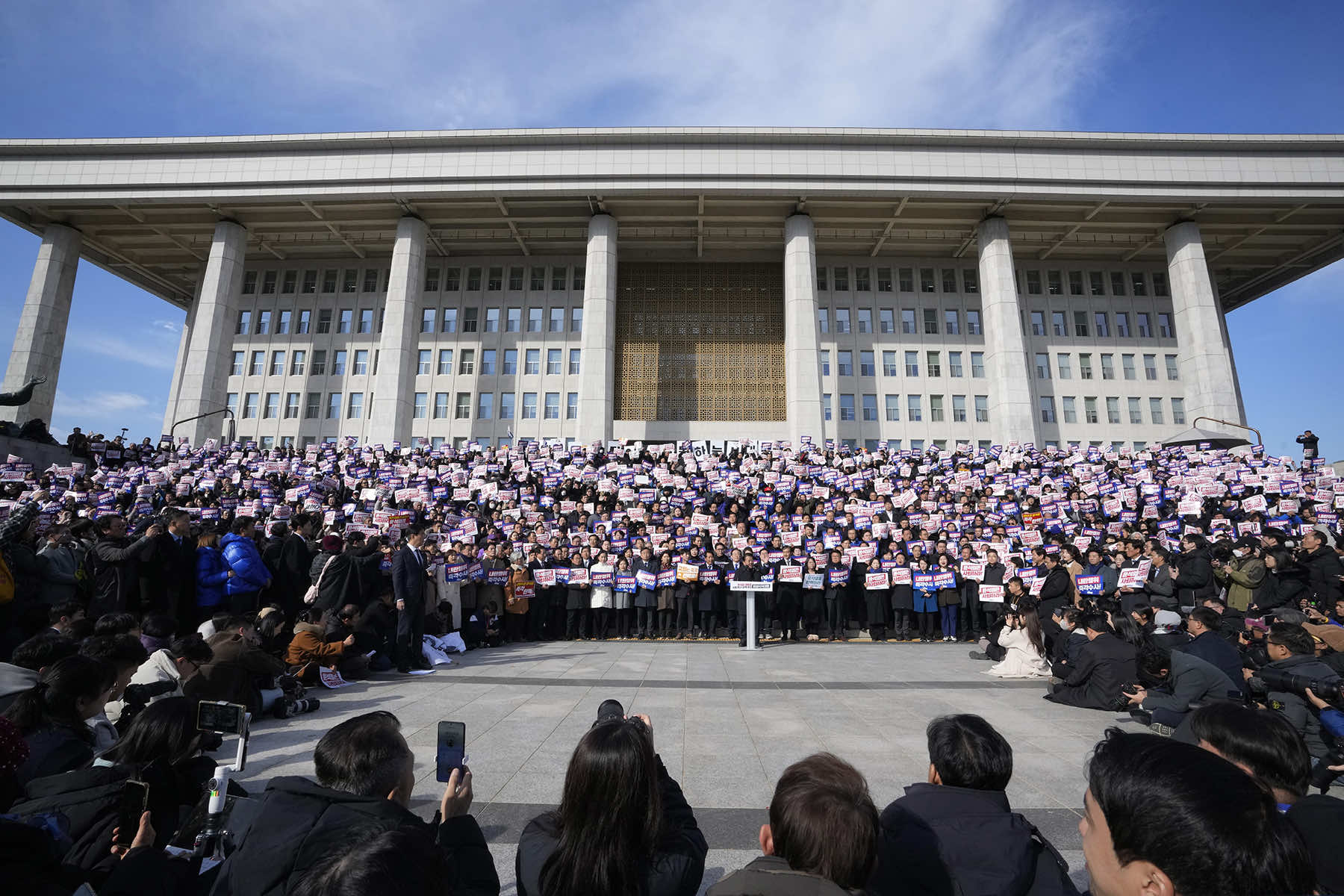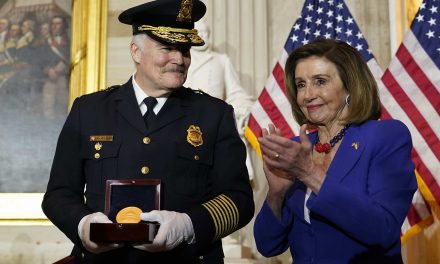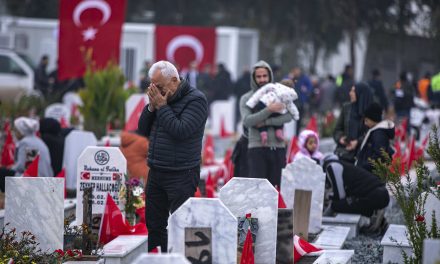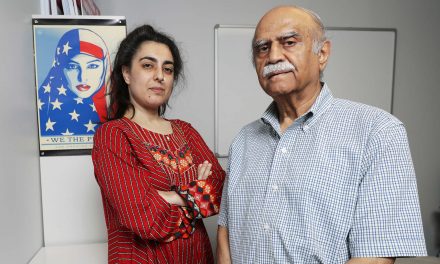
It may seem that the wild predawn scenes in Seoul, with hundreds of armed troops and frantic lawmakers storming South Korea’s parliament building after the president suddenly declared martial law, came out of nowhere.
But the chaotic events, which were still playing out on December 4 as opposition leaders introduced an impeachment motion and called for President Yoon Suk Yeol’s immediate resignation, should be seen in the context of South Korea’s recent tumultuous political and social history.
These moments resonate with South Koreans in their daily lives, and as they look to explain Yoon’s short-lived declaration of emergency martial law, even if there is still widespread confusion and anger over his decision.
From a nationwide doctors’ strike, to an opposition leader narrowly avoiding prison amid a raft of court cases, to millions of people filling the streets in protest to drive out an elected leader, here is a look at some of those recent crucial developments.
A NATIONWIDE DOCTORS’ STRIKE
For months, it has been health, not politics, that has been a major focus of many South Koreans. An extended strike by thousands of junior doctors who have refused to see patients or attend surgeries has disrupted operations at hospitals across the country.
The strife is especially acute in a nation facing a major demographic crisis. South Korea has one of the fastest aging, fastest shrinking populations in the developed world. There is hardly a family that has not struggled with medical care for loved ones.
The strike, which is ongoing, began on February 20 in response to a government push to recruit more medical students.
Yoon’s government has taken a hard line, warning that doctors must return to work or face license suspensions and prosecutions. He has said the strike poses “a grave threat to our society.”
At issue is the government plan to raise South Korea’s annual medical school admission cap by 2,000 from the current 3,058. The enrollment plan is meant to add up to 10,000 doctors by 2035 to cope with the country’s fast-aging population. Officials say South Korea has 2.1 physicians per 1,000 people — far below the average of 3.7 in the developed world.
The striking doctors-in-training predict that doctors in greater competition would overtreat patients, increasing public medical expenses. Some critics say the striking junior doctors simply oppose the government plan because they believe adding more doctors would result in lower incomes.
A POWERFUL OPPOSITION IN TURMOIL
Investigations and legal proceedings against major political figures are common in South Korea. Almost all former presidents, or their family members and key associates, have been mired in scandals near the end of their terms or after they left office.
The current opposition leader, Lee Jae-myung, a firebrand liberal who narrowly lost the 2022 election to Yoon, has also been dogged by corruption claims.
Lee, who was stabbed in an attack and underwent surgery earlier this year, says Yoon’s promotion of divisive politics has worsened an already toxic national discourse.
In November, Lee was convicted of violating election law and sentenced to a suspended prison term for making false statements during a presidential campaign. He faces three other trials over corruption and other criminal charges.
It remains unclear whether the Supreme Court will decide on any of the cases before the next presidential vote in March 2027. Lee has steadfastly denied wrongdoing.
It is unclear, of course, how events in coming days will play out, but the martial law declaration could be a boon to Lee, especially if it results in an early exit for Yoon and a presidential by-election.
On December 4, he livestreamed himself climbing over a wall near parliament, one of a wave of lawmakers who dodged troops and police to get into the National Assembly.
MASSIVE PROTESTS DRIVE AN ELECTED PRESIDENT OUT OF OFFICE
Perhaps the most epochal event in recent South Korean political history — and the one many people will be thinking of as Yoon faces the consequences of his declaration — was the downfall of conservative former President Park Geun-hye.
After near-daily protests in 2016 that saw millions take to the streets around the country, Park was the first democratically elected leader to be forced from office since democracy came to South Korea in the late 1980s.
Park, who was pardoned in late 2021 by her liberal rival and successor, former President Moon Jae-in, was serving a lengthy prison term for bribery and other crimes.
Park, the daughter of assassinated dictator Park Chung-hee, won election as South Korea’s first female president in late 2012 by beating Moon by a million votes. Conservatives celebrated her father as a hero who pulled the country up from postwar poverty despite his suppression of human rights.
She was impeached by lawmakers in late 2016 and was formally removed from office and arrested the following year.
Among the main charges she faced was collusion with her longtime confidante, Choi Soon-sil, to take millions of dollars in bribes and extortion from some of the country’s largest business groups, including Samsung, while she was in office.
Park has described herself as a victim of political revenge.
- Exploring Korea: Stories from Milwaukee to the DMZ and across a divided peninsula
- A pawn of history: How the Great Power struggle to control Korea set the stage for its civil war
- Names for Korea: The evolution of English words used for its identity from Gojoseon to Daehan Minguk
- SeonJoo So Oh: Living her dream of creating a "folded paper" bridge between Milwaukee and Korean culture
- A Cultural Bridge: Why Milwaukee needs to invest in a Museum that celebrates Korean art and history
- Korean diplomat joins Milwaukee's Korean American community in celebration of 79th Liberation Day
- John T. Chisholm: Standing guard along the volatile Korean DMZ at the end of the Cold War
- Most Dangerous Game: The golf course where U.S. soldiers play surrounded by North Korean snipers
- Triumph and Tragedy: How the 1988 Seoul Olympics became a battleground for Cold War politics
- Dan Odya: The challenges of serving at the Korean Demilitarized Zone during the Vietnam War
- The Korean Demilitarized Zone: A border between peace and war that also cuts across hearts and history
- The Korean DMZ Conflict: A forgotten "Second Chapter" of America's "Forgotten War"
- Dick Cavalco: A life shaped by service but also silence for 65 years about the Korean War
- Overshadowed by conflict: Why the Korean War still struggles for recognition and remembrance
- Wisconsin's Korean War Memorial stands as a timeless tribute to a generation of "forgotten" veterans
- Glenn Dohrmann: The extraordinary journey from an orphaned farm boy to a highly decorated hero
- The fight for Hill 266: Glenn Dohrmann recalls one of the Korean War's most fierce battles
- Frozen in time: Rare photos from a side of the Korean War that most families in Milwaukee never saw
- Jessica Boling: The emotional journey from an American adoption to reclaiming her Korean identity
- A deportation story: When South Korea was forced to confront its adoption industry's history of abuse
- South Korea faces severe population decline amid growing burdens on marriage and parenthood
- Emma Daisy Gertel: Why finding comfort with the "in-between space" as a Korean adoptee is a superpower
- The Soul of Seoul: A photographic look at the dynamic streets and urban layers of a megacity
- The Creation of Hangul: A linguistic masterpiece designed by King Sejong to increase Korean literacy
- Rick Wood: Veteran Milwaukee photojournalist reflects on his rare trip to reclusive North Korea
- Dynastic Rule: Personality cult of Kim Jong Un expands as North Koreans wear his pins to show total loyalty
- South Korea formalizes nuclear deterrent strategy with U.S. as North Korea aims to boost atomic arsenal
- Tea with Jin: A rare conversation with a North Korean defector living a happier life in Seoul
- Journalism and Statecraft: Why it is complicated for foreign press to interview a North Korean defector
- Inside North Korea’s Isolation: A decade of images show rare views of life around Pyongyang
- Karyn Althoff Roelke: How Honor Flights remind Korean War veterans that they are not forgotten
- Letters from North Korea: How Milwaukee County Historical Society preserves stories from war veterans
- A Cold War Secret: Graves discovered of Russian pilots who flew MiG jets for North Korea during Korean War
- Heechang Kang: How a Korean American pastor balances tradition and integration at church
- Faith and Heritage: A Pew Research Center's perspective on Korean American Christians in Milwaukee
- Landmark legal verdict by South Korea's top court opens the door to some rights for same-sex couples
- Kenny Yoo: How the adversities of dyslexia and the war in Afghanistan fueled his success as a photojournalist
- Walking between two worlds: The complex dynamics of code-switching among Korean Americans
- A look back at Kamala Harris in South Korea as U.S. looks ahead to more provocations by North Korea
- Jason S. Yi: Feeling at peace with the duality of being both an American and a Korean in Milwaukee
- The Zainichi experience: Second season of “Pachinko” examines the hardships of ethnic Koreans in Japan
- Shadows of History: South Korea's lingering struggle for justice over "Comfort Women"
- Christopher Michael Doll: An unexpected life in South Korea and its cross-cultural intersections
- Korea in 1895: How UW-Milwaukee's AGSL protects the historic treasures of Kim Jeong-ho and George C. Foulk
- "Ink. Brush. Paper." Exhibit: Korean Sumukhwa art highlights women’s empowerment in Milwaukee
- Christopher Wing: The cultural bonds between Milwaukee and Changwon built by brewing beer
- Halloween Crowd Crush: A solemn remembrance of the Itaewon tragedy after two years of mourning
- Forgotten Victims: How panic and paranoia led to a massacre of refugees at the No Gun Ri Bridge
- Kyoung Ae Cho: How embracing Korean heritage and uniting cultures started with her own name
- Complexities of Identity: When being from North Korea does not mean being North Korean
- A fragile peace: Tensions simmer at DMZ as North Korean soldiers cross into the South multiple times
- Byung-Il Choi: A lifelong dedication to medicine began with the kindness of U.S. soldiers to a child of war
- Restoring Harmony: South Korea's long search to reclaim its identity from Japanese occupation
- Sado gold mine gains UNESCO status after Tokyo pledges to exhibit WWII trauma of Korean laborers
- The Heartbeat of K-Pop: How Tina Melk's passion for Korean music inspired a utopia for others to share
- K-pop Revolution: The Korean cultural phenomenon that captivated a growing audience in Milwaukee
- Artifacts from BTS and LE SSERAFIM featured at Grammy Museum exhibit put K-pop fashion in the spotlight
- Hyunjoo Han: The unconventional path from a Korean village to Milwaukee’s multicultural landscape
- The Battle of Restraint: How nuclear weapons almost redefined warfare on the Korean peninsula
- Rejection of peace: Why North Korea's increasing hostility to the South was inevitable
- WonWoo Chung: Navigating life, faith, and identity between cultures in Milwaukee and Seoul
- Korean Landmarks: A visual tour of heritage sites from the Silla and Joseon Dynasties
- South Korea’s Digital Nomad Visa offers a global gateway for Milwaukee’s young professionals
- Forgotten Gando: Why the autonomous Korean territory within China remains a footnote in history
- A game of maps: How China prepared to steal Korean history to prevent reunification
- From Taiwan to Korea: When Mao Zedong shifted China’s priority amid Soviet and American pressures
- Hoyoon Min: Putting his future on hold in Milwaukee to serve in his homeland's military
- A long journey home: Robert P. Raess laid to rest in Wisconsin after being MIA in Korean War for 70 years
- Existential threats: A cost of living in Seoul comes with being in range of North Korea's artillery
- Jinseon Kim: A Seoulite's creative adventure recording the city’s legacy and allure through art
- A subway journey: Exploring Euljiro in illustrations and by foot on Line 2 with artist Jinseon Kim
- Seoul Searching: Revisiting the first film to explore the experiences of Korean adoptees and diaspora















